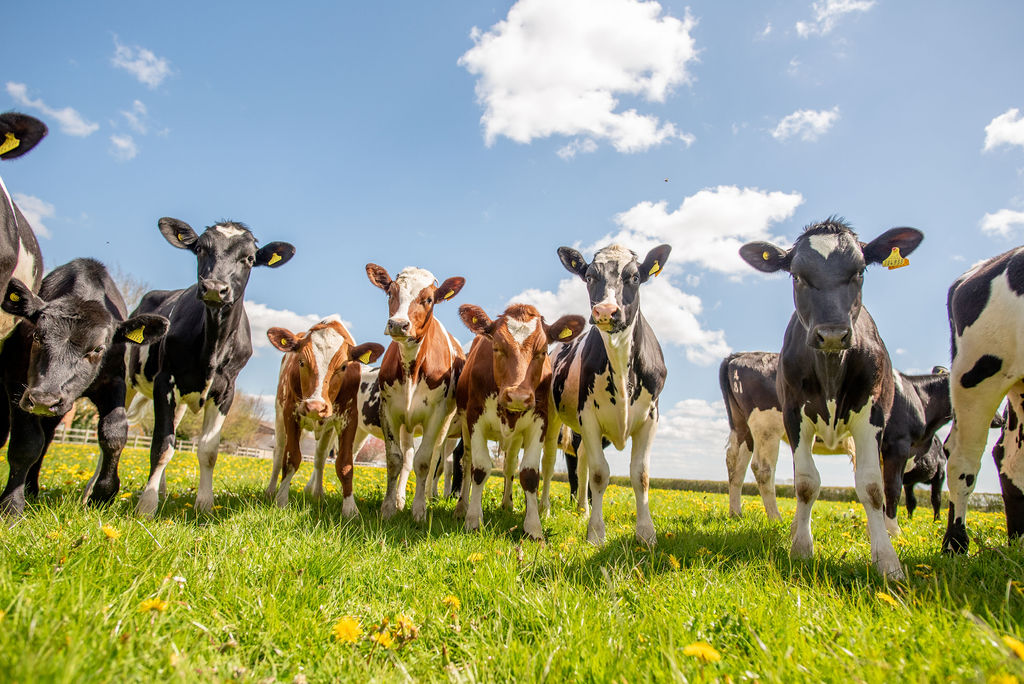
Reflecting on what’s happening down on the farm, John Pitts, our owner and fourth generation farmer at Woodhorn, shares some thoughts about the farm’s relationship with Organic Herd.
Organic Herd is a farmer owned co-operative of around 100 Organic dairy farmers across the UK and we at Woodhorn have been proud members for the past 25 years. Organic Herd supplies milk to the likes of Yeo Valley, Wyke Farms and Kendal Nutricare baby foods. As well as being the only 100% Organic dairy cooperative in the UK, they are also the only supplier of milk in Europe that come from farms that never use antibiotics.
A year ago Organic Herd launched an own range of speciality cheeses, butters and chocolates. None of these are available in supermarkets simply because the big chains expect to take such a big percentage of the sale price that, after production costs, there would be nothing left to go back to the farmers.
So instead these products are available through delis across the country, stores such as Planet Organic and in our vending machine at Woodhorn Farm!
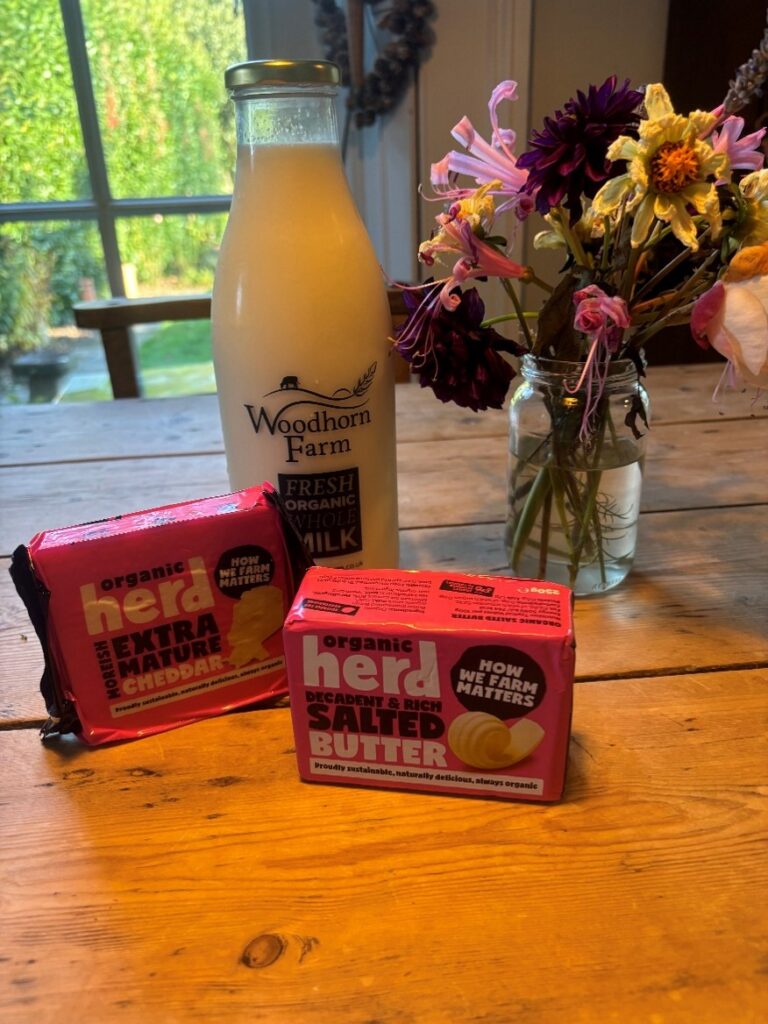
All products are made by artisan producers that fit Organic Herd’s ethos (“How We Farm Matters”), are made to historical recipes, are additive free and of course are made from milk that is certified Organic and antibiotic free. Cheeses are made using traditional cultures and matured in wooden boxes, whilst butters are cream tumbled in 1960s butter barrels and then hand salted and churned in small batches.
Whilst this might seem an Organic Herd advertisement, it’s simply another part of our story and who we are at Woodhorn, supporting all the things we are trying to achieve.


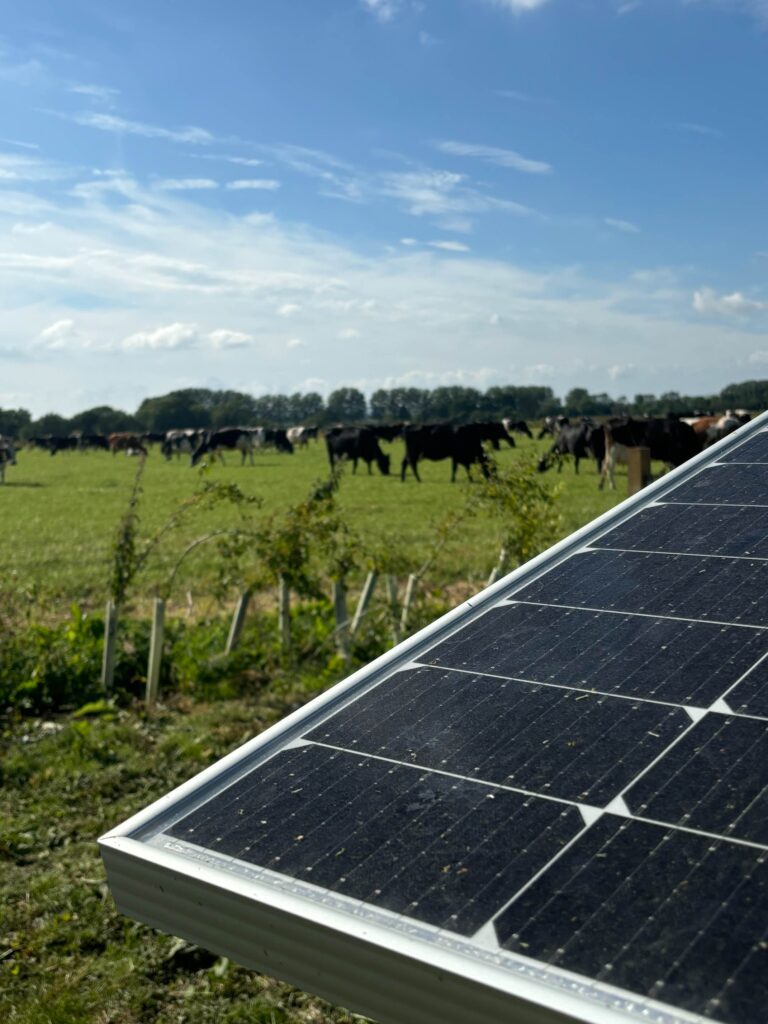
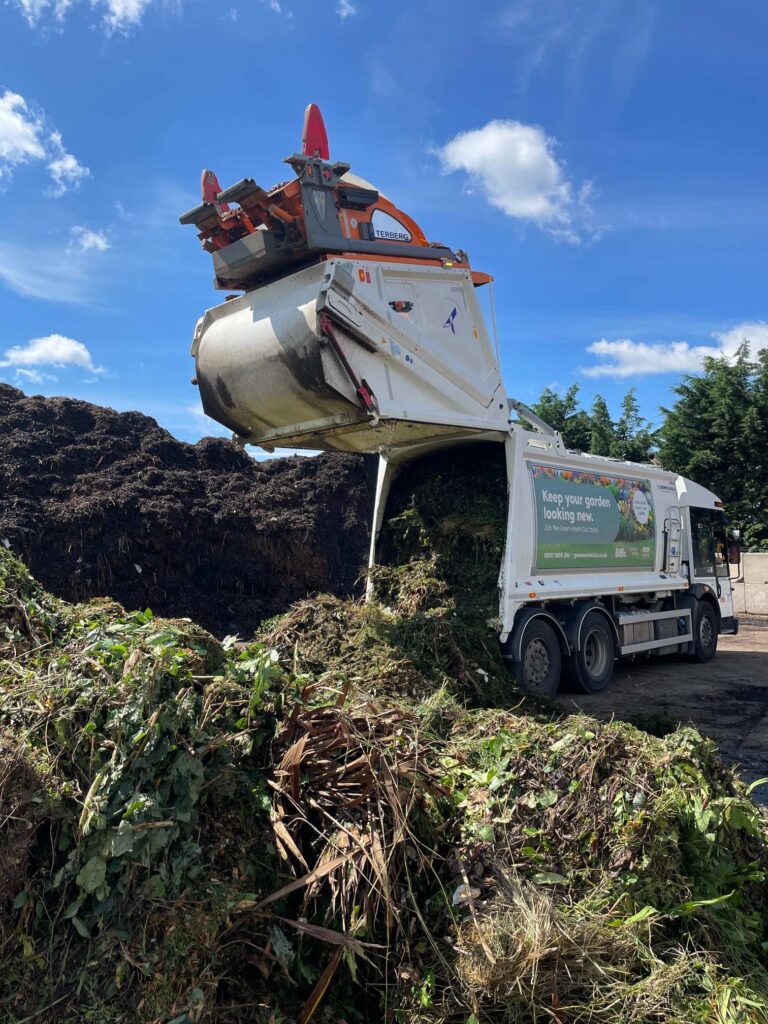
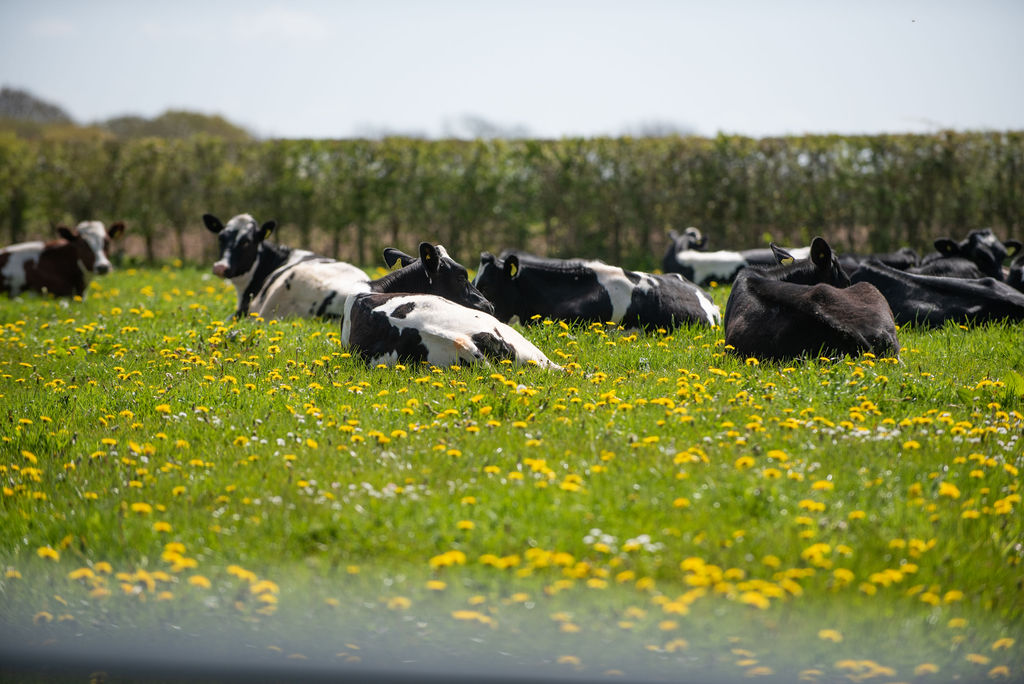
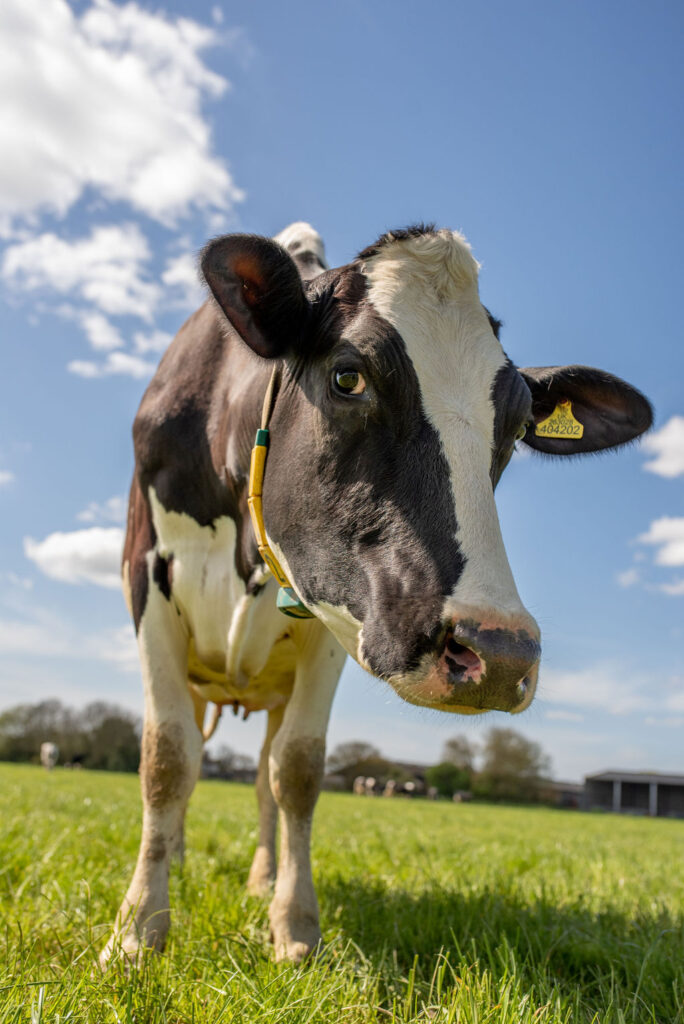
Recent Comments